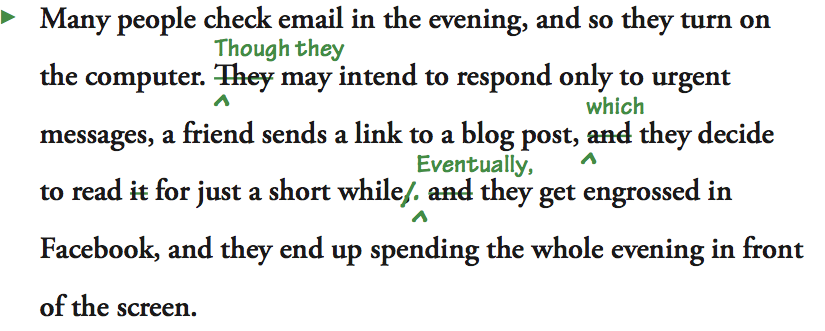31b Distinguish main ideas.
Subordination allows you to distinguish between major points and minor points or to bring in supporting details. If, for instance, you put your main idea in an independent clause, you might then put any less significant ideas in dependent clauses, phrases, or even single words. The following sentence highlights the subordinated point:
Mrs. Viola Cullinan was a plump woman who lived in a three-bedroom house somewhere behind the post office.
—Maya Angelou, “My Name Is Margaret”
The dependent clause adds important information about Mrs. Cullinan, but it is subordinate to the independent clause.
Notice that the choice of what to subordinate rests with the writer and depends on the intended meaning. Angelou might have given the same basic information differently.
Mrs. Viola Cullinan, a plump woman, lived in a three-bedroom house somewhere behind the post office.
Subordinating the information about Mrs. Cullinan’s size to that about her house would suggest a slightly different meaning, of course. As a writer, you must think carefully about what you want to emphasize and must subordinate information accordingly.
Subordination can also establish logical relationships among ideas. These relationships are often specified by subordinating conjunctions.
some common subordinating conjunctions
| after | if | though |
| although | in order that | unless |
| as | once | until |
| asif | since | when |
| because | so that | where |
| before | than | while |
| even though | that |
In the following sentence, the subordinate clause is highlighted and the subordinating word underlined.
She usually rested her smile until late afternoon when her women friends dropped in and Miss Glory, the cook, served them cold drinks on the closed-in porch.
—Maya Angelou, “My Name Is Margaret”
Using too many coordinate structures can be monotonous and can make it hard for readers to recognize the most important ideas. Subordinating lesser ideas can help highlight the main ideas.
